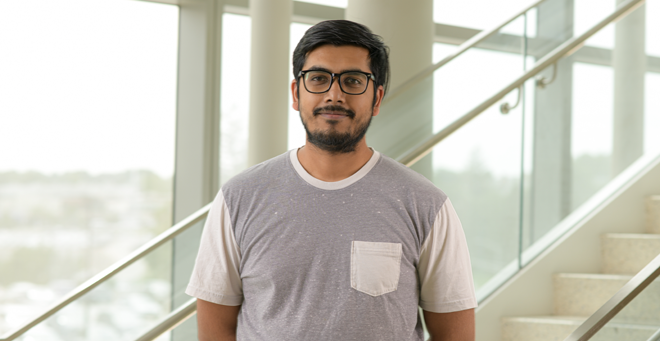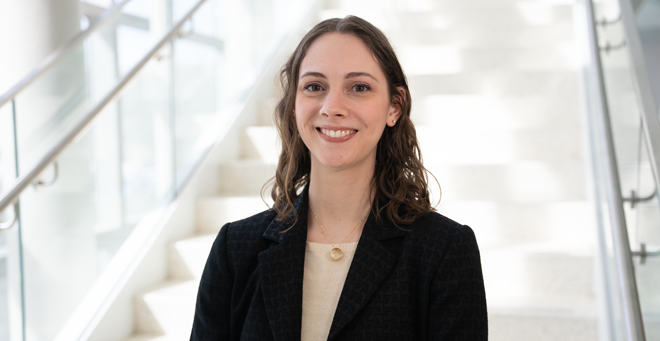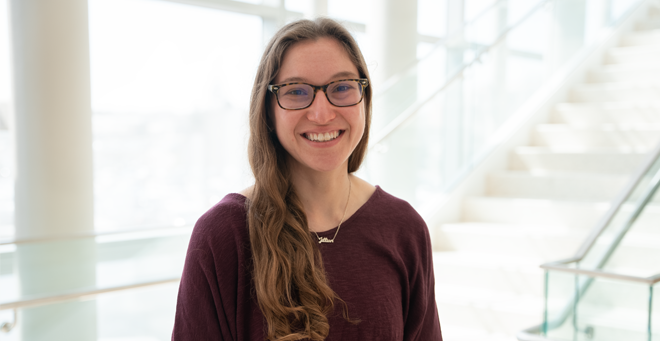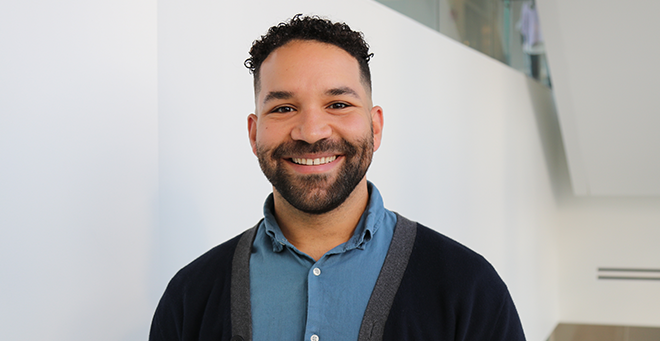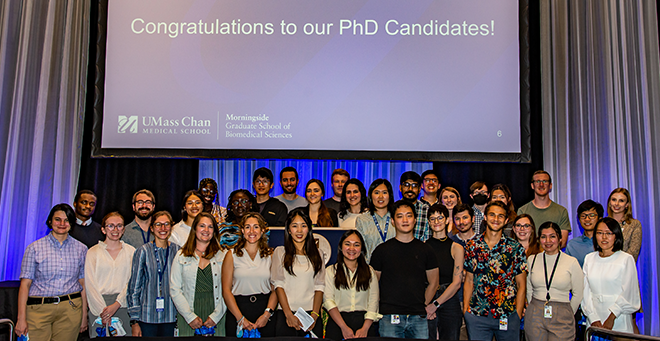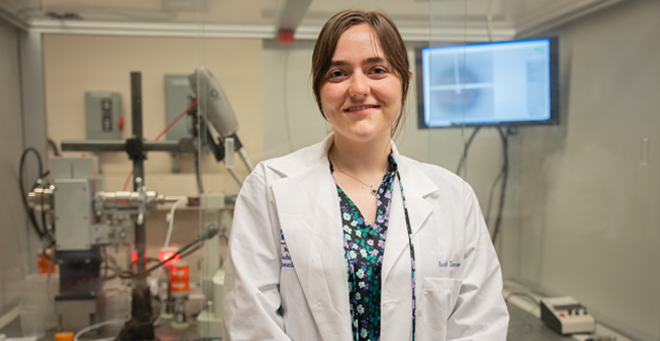
Drawn to work on diseases that affect underrepresented populations disproportionately, UMass Chan Medical School student Sarah Zvornicanin has received a prestigious Ruth L. Kirschstein National Research Service Award Individual Predoctoral Fellowship to Promote Diversity in Health-Related Research.
The PhD candidate will use funding from the National Institute of Allergy and Infectious Diseases to study human T-lymphotropic virus type 1 (HTLV-1), a retrovirus spread through bodily fluids that can cause adult T-cell leukemia/lymphoma and a progressive nervous system condition (HTLV-1–associated myelopathy/tropical spastic paraparesis). An estimated 5 to 10 million people are infected globally, with those with low incomes and limited formal education disproportionately affected.
“Most people who get HTLV-1 have no symptoms, but about 5 to 10 percent of people develop debilitating or severe symptoms,” said Zvornicanin, a student in the Morningside Graduate School of Biomedical Sciences Biochemistry and Molecular Biotechnology Program. “A woman who doesn’t know she has HTLV-1 can give it to her children through breastfeeding, which is tragic. There are no vaccines or targeted treatments against this disease and that inspires me.”
Zvornicanin’s mentor is Celia Schiffer, PhD, the Arthur F. and Helen P. Koskinas Professor of Biochemistry and Molecular Biotechnology and chair and professor of biochemistry & molecular biotechnology. Zvornicanin was drawn to Dr. Schiffer’s lab by its work on another retrovirus, human immunodeficiency virus (HIV).
Zvornicanin’s father contracted HIV when he was young. Visiting her father in the hospital during her years growing up in a low-income area of Louisville, Kentucky, inspired Zvornicanin to work on diseases associated with poverty such as HTLV-1. With viral loads of near zero, her father is a success story, she said, but she knows others aren’t as fortunate.
“The Schiffer lab has done a lot of work optimizing direct-acting antivirals for drug-resistant strains of HIV. That work can easily be translated to HTLV-1 and it’s a missed opportunity not to do so,” Zvornicanin said. “With this project, I’m hoping to create a direct-acting antiviral to inhibit HTLV-1 protease. The function of HTLV-1 protease is necessary for infectious viral replication. By inhibiting the viral HTLV-1 protease, we can perhaps slow the progress of and decrease symptoms of the disease.”
Schiffer said her lab’s HTLV-1 research was started in 2018 and is co-led by Akbar Ali, PhD, associate professor of biochemistry & molecular biotechnology; Nese Kurt Yilmaz, PhD, associate professor of biochemistry & molecular biotechnology; and Mohan Somasundaran, PhD, associate professor of biochemistry & molecular biotechnology.
“As no direct-acting antivirals exist to treat individuals infected with HTLV-1, our laboratory has been working to modify HIV protease inhibitors to target HTLV-1 protease over the last several years,” Schiffer said. “We are very excited about the award of Sarah’s NIH F31, as her insights into structural biology of HTLV-1 protease and how inhibitors may bind could be pivotal in our development of more potent molecules.”
Zvornicanin is a member of the Graduate Student Body Council at UMass Chan, pushing the student government to help students financially. She is also a member of the diversity action committee in the Department of Biochemistry & Molecular Biotechnology, working to make graduate student recruitment equitable for people with scientifically, economically and socially diverse backgrounds. She double majored in biochemistry & biophysics and religion at Amherst College and came to Worcester at the start of the COVID-19 pandemic. Her husband Jasmin Zvornicanin, MD, followed when he matched into the Internal Medicine Residency Program at UMass Chan.
